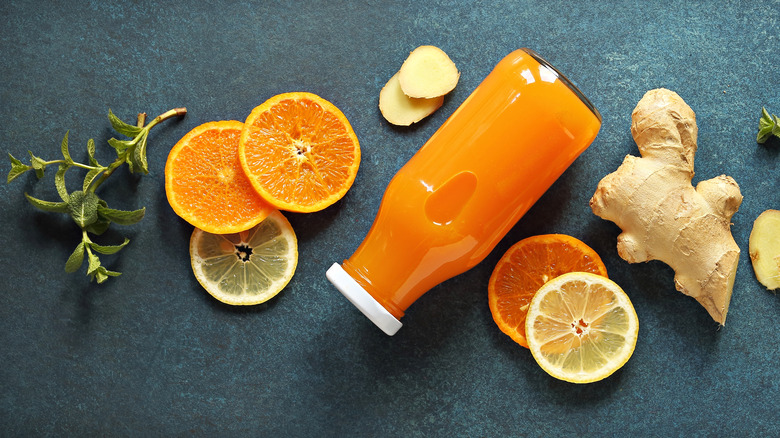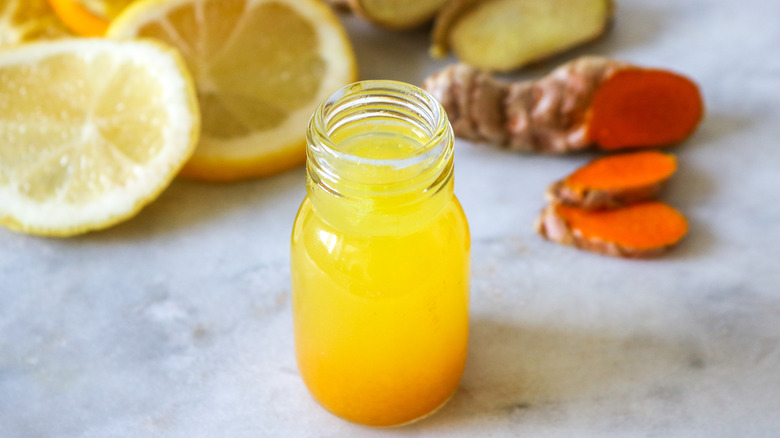This Is What Happens When You Take A Wellness Shot Every Day
Wellness shots are majorly trending in the health and wellness community. While some types of wellness shots, like wheatgrass shots, have been around for a while, wellness shots have grown exponentially in both flavor and popularity within the last few years (via Women's Health). Nowadays, just about every grocery store carries at least one brand of wellness shots, but what exactly are wellness shots and are they actually good for you?
Wellness shots are condensed and concentrated cold-pressed juices that are meant to boost immunity and restore energy. They're made up of a mix of fruits, vegetables, roots, and herbs and contain a number of important vitamins and minerals. While the exact ingredients vary from brand to brand, wellness shots commonly include components such as ginger, turmeric, lemon, or apple cider vinegar. Because they're marketed as a shot rather than a full-sized beverage, wellness shots generally come in small 2-ounce bottles, though they can range in size.
Are wellness shots good for you?
While there's certainly no harm in drinking them, wellness shots just don't live up to the hype when it comes to their purported health benefits (via Men's Journal). Despite being touted as immune boosters, the nutrients in wellness shots are too few and too diluted to really impact or improve digestion, immune function, or energy levels as the packaging often suggests.
"The amount is probably too little to make a difference," Dr. Kristine Gedroic tells Men's Journal. "There's no hard scientific research that shows consuming ingredients in shot form is beneficial," she states. All in all, it's better to get your daily nutrients from solid produce rather than consuming them in liquid form. However, this doesn't mean that wellness shots are completely devoid of nutrients or that you shouldn't drink them (via Greatist). It just means you shouldn't rely solely on wellness shots to fulfill your daily dietary needs. The bottom line is that wellness shots really can't replace the nutritional value of actual fruits and vegetables.

